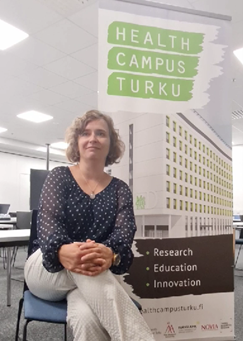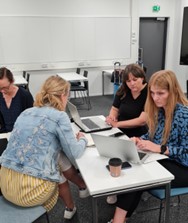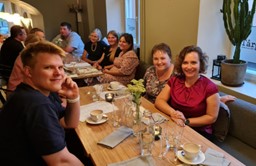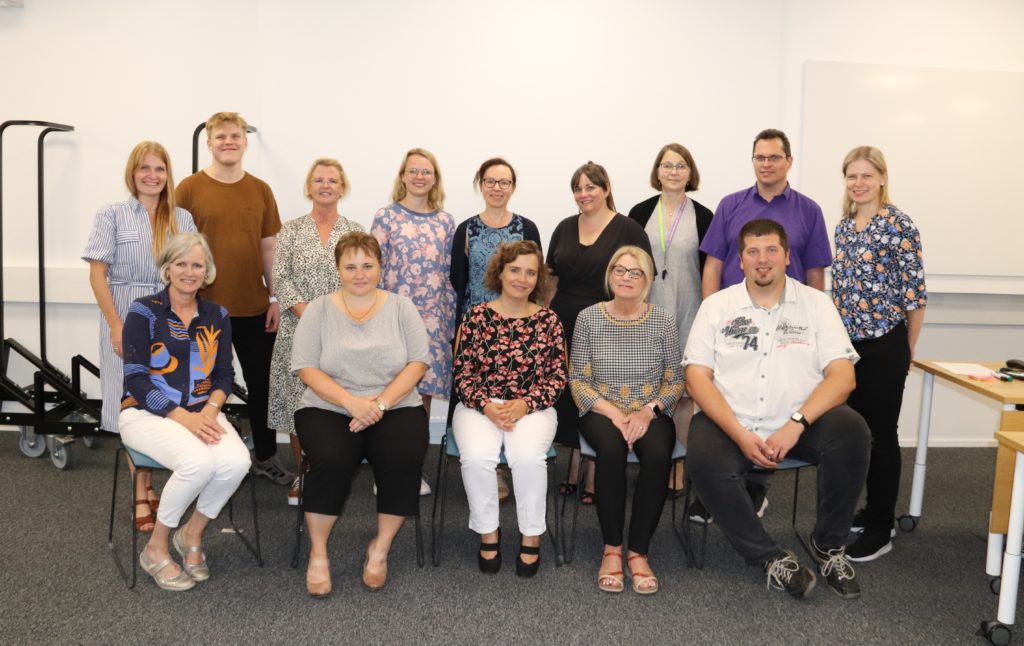
After half a year of virtual interactions and working remotely, the meeting held at the University of Turku, from the 22nd to the 24th of August 2022, offered us an excellent opportunity to once again utilise the benefits of in-person collaboration. The Finish team welcomed the rest of the ViReTrain project group to their beautiful country and hosted this productive event. Upon arriving, the visiting colleagues were greeted by Anna Axelin, the head of the Department of Nursing Science at the University of Turku. With everyone together, the proceedings got underway.
The Finnish team delivered an introductory overview of their organisation and facilities. At this point, and indeed throughout, the similarities and differences across countries were brought to light, which sparked some engaging points of discussion among the broader team.
The various teams presented their work from the previous number of months.
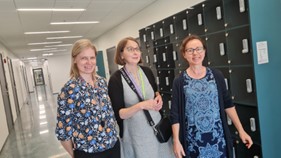
The Finnish team started with results from their literature review. They offered insights into features that can be helpful to improve scenarios, such as incorporating original background noises. They also reported on learnings from other projects, like pitfalls that can occur when attempting to include conversations.
The technical team presented a first version of the project’s trailer with some clips from the prototype. Stay tuned, this will be available to see on our website soon!
The Danish team explored their scenarios involving Margrethe, a patient suffering from chronic obstructive pulmonary disease (COPD). They presented how two planned scenarios are embedded within a learning unit, involving competencies that the students can achieve. Next, they brought focus to the didactic considerations and the story about Margrethe’s love for dogs. The Danish team talked about the experiences they already have with virtual scenarios. They offered an interesting view on practical aspects and considerations for the debriefing, for example, including input from other students who are watching from a tablet, and strategies for dealing with mistakes. An important focus was also laid on the translation of the scenario into a “language” that the technical team can work with. The Danish team explored their idea of a table that can be converted into a graphic and finally into a scenario itself. During the presentation, the group developed new ideas for all the scenarios to try to make them even more engaging.
These conversations were so stimulating that we couldn’t fit them all into the first day and so we had to spill them into the following one.
The next day began with a presentation by the German team who highlighted their approach on the scenarios including Mr. Schmidt who suffered a hip fracture. There was a deep focus on the pedagogical underpinning and development from an educational point of view. For this, they used authentic reports and a variation of Darmann-Finck’s heuristic matrix. The group discussed different approaches and how to present them to the public later. We are eager to see how a scenario, with a lot more possible action branches than usual, will work out.
The third scenario was introduced by the Irish team. In it, the player cares for Mr. Smith who presented to the hospital with a stroke just a few hours prior. Based on expert’s reports, the content was established and enabled a clear picture about the use of the nursing process in daily work.
All in all it was fascinating how three scenarios with different approaches and focuses emerged and how delving into them as a group led to further ideas emerging and provided possible enhancements for each other’s work.
Next to the presentations and discussions the group got a glimpse into the Finish nursing training. We all visited the simulation lab of the Turku University and talked to nursing educators about the positive aspects as well as the challenges within nursing, in their country.
The rest of the day was spent with organisational issues and the planning of multiplier events in the upcoming year.
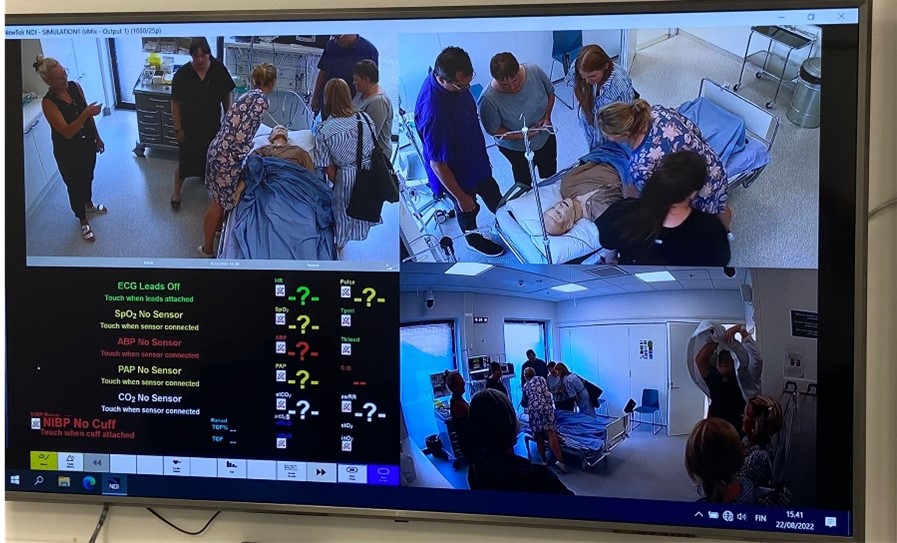
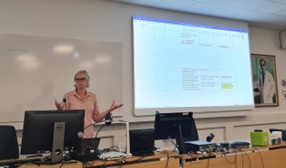
The focus of the third and rapidly approaching final day was set on the handbook and its contents. As the lead on this portion, the Irish team presented the current state and upcoming questions. Further decisions were made on content and definitions of any key terms that were seen to have variation across countries.
Even after the official part of the meeting ended, experts from the team were still consulted about parts of the handbook, helping to shape it in the best possible way so as to enable everyone to use it and understand the scenarios created.
As a result of this meeting, the project took a giant step forward. The entire group thanks our Finnish colleagues for the well-structured meeting and for performing an excellent role as hosts! We are looking forward to meeting again at the end of February, this time in Galway, Ireland. Hopefully we will be further along the road to delivering some playable scenarios.
